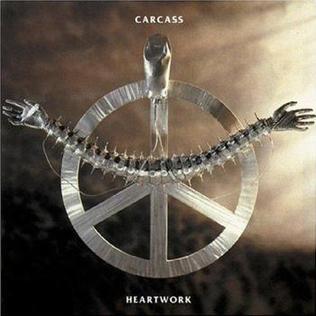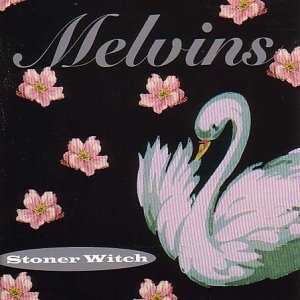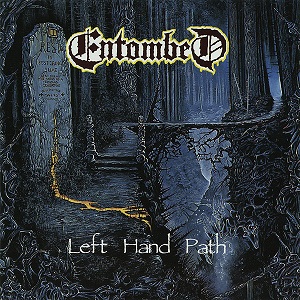
Beg to Differ is the second studio album by American heavy metal band Prong, released in 1990 through Epic Records. The album includes one live track recorded at CBGB's in New York City in 1989. Brian "Pushead" Schroeder did the design and cover artwork for the album. Part of the song "Lost and Found" was used for commercial breaks of MTV's Headbangers Ball in the early 1990s.

Clandestine is the second studio album by Swedish death metal band Entombed, released on 12 November 1991 in Europe and on 11 February 1992 in North America. Along with Entombed's preceding album, Clandestine helped establish a distinctively Swedish sound in the death metal genre.

Heartwork is the fourth studio album by English extreme metal band Carcass. The album was released in the UK by Earache Records on 18 October 1993, and in the United States on 11 January 1994 by Columbia Records, making it the band's only major label release. Heartwork has been described as the band's "breakthrough" and "mid-period masterpiece", as well as a landmark album in melodic death metal. The album was recorded at Parr Street Studios, Liverpool from 18 May – 21 June 1993.

Slaughter of the Soul is the fourth studio album by Swedish melodic death metal band At the Gates, released on 14 November 1995 by Earache Records. It was their last album before their eleven-year breakup from 1996 to 2007. Slaughter of the Soul is considered a landmark in melodic death metal and played a major role in popularizing the Gothenburg scene, alongside The Jester Race by In Flames and The Gallery by Dark Tranquillity. The album was recorded and mixed in Studio Fredman, early 1995.

Stoner Witch is the seventh studio album by American rock band Melvins, released on October 18, 1994, by Atlantic Records.

The flexi disc is a phonograph record made of a thin, flexible vinyl sheet with a molded-in spiral stylus groove, and is designed to be playable on a normal phonograph turntable.

Kurt Ballou is an American musician and producer based in Massachusetts, best known as the guitarist for hardcore punk band Converge and for his prolific recording and production work at his own GodCity Studio.

Under the Sign of the Black Mark is the third studio album by Swedish extreme metal band Bathory. It was recorded in September 1986 and released on 11 May 1987 through New Renaissance Records and Under One Flag. It was a key album in the development of the black metal genre, and greatly influenced the Norwegian black metal scene that emerged in the early 1990s.

Oceanic is the second full-length album by American post-metal band ISIS, released on September 17, 2002, by Ipecac Recordings. On November 4, 2014, a remastered edition was released via Hydrahead/Ipecac Recordings. Since its release, Oceanic has received critical acclaim and has been regarded as a masterpiece.

Left Hand Path is the debut studio album by Swedish death metal band Entombed, released on 4 June 1990 by Earache Records.

Celestial is the debut album by American post-metal band Isis, released in 2000 by Escape Artist and Hydra Head Records. It is their third "official" solo release and first full length.

The Ultra-Violence is the debut studio album by American thrash metal band Death Angel, released in 1987. The album was recorded while all members were under 20, with drummer Andy Galeon just 14 years old. It was mixed at George Tobin Studios in Hollywood, California.

Sacrament is the fifth studio album by American heavy metal band Lamb of God. Released on August 22, 2006, Sacrament debuted at No. 8 on the Billboard 200 charts with first-week sales of 63,000. The album was the top-selling heavy metal album of 2006 and received the Album of the Year award from Revolver magazine. As of 2010, it has sold over 331,000 copies in the United States, and was certified Gold by the RIAA on September 27, 2019.

The Fire in Our Throats Will Beckon the Thaw is the second studio album by American post-metal band Pelican. It was released May 22, 2005 on Hydra Head Records. Regarding the lengthy and unusual name of the album, guitarist Trevor de Brauw joked, "The title is meant to confuse people. The original title was going to be Black Doom on Tuesday."
Damien Gregori is an Irish musician.

Richie Unterberger is an American author and journalist whose focus is popular music and travel writing.

Heavy Metal Maniac is the debut studio album by the Canadian speed metal band Exciter, released through Shrapnel Records in 1983. The album was reissued by Megaforce Records in 2005.

Bloody Panda is a doom metal band based in New York City.

Temple of the Morning Star is the fourth studio album by the American noisecore band Today Is the Day, released on September 23, 1997, by Relapse Records. Since its release in 1997, the album has garnered much praise from critics and is considered to be one of the band's best albums. The album was reissued twice, first in 2006 on CD formats, and again in 2017 to celebrate its 20th anniversary. In 2017, the album was included in Decibel magazine's "Hall of Fame" list.

Jerusalem and Dopesmoker are two versions of the third studio album by the American stoner doom band Sleep. The former title was released in 1999 by The Music Cartel and the latter was released by Tee Pee Records in 2003. The music for these albums comprises an extended hour-length piece, developed over four years and recorded in 1996 under the auspices of Sleep's label at the time, London Records. When recording had completed, London was unhappy with the finished product and refused to release it, leading to Sleep's disbandment and the album surfacing on bootlegs and unauthorized indie releases in subsequent years. All versions of the album received very positive reception from music critics, who described it as a high-water mark in both the stoner metal and doom metal genres.

















